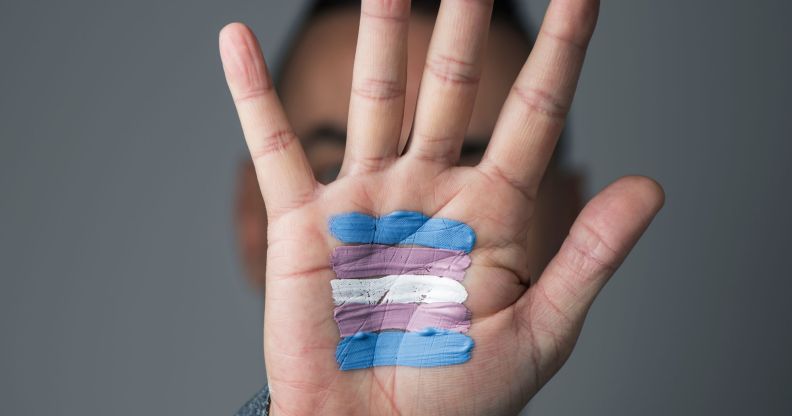Lifestyle
UK Trans Man Challenges Gender Panel’s Ruling on Parenthood

A trans man in the UK is contesting a ruling by the Gender Recognition Panel that denied his application for a Gender Recognition Certificate (GRC) based on his desire to have children. The panel’s decision, which has sparked significant debate, is being challenged in the High Court, with the applicant claiming it infringes upon his human rights.
Under the current provisions of the Gender Recognition Act, individuals must meet specific criteria to obtain a GRC. This includes having a diagnosis of gender dysphoria, being over 18, demonstrating that they have lived as their affirmed gender for at least two years, and stating their intention to live in that gender for the rest of their life. In this case, the panel argued that the man’s intention to conceive indicated he had not been living as a man.
The legal representatives from the Good Law Project, who are advocating for the trans man, presented their case in the High Court in July 2023. They assert that the panel’s decision contravenes rulings from the European Court of Human Rights, which has maintained that trans individuals should not be required to cease attempts to conceive or undergo sterilisation to have their gender legally recognised.
Legal Implications and Human Rights Concerns
Jess O’Thomson, a spokesperson for the Good Law Project, highlighted the urgency of the case, noting that it is crucial to challenge such decisions during a time of increasing political and systemic pressures on the trans community in the UK. “Trans people are being ripped up,” said O’Thomson. “Requiring that a minority does not have children reeks of eugenics.”
Currently, at least 25 countries enforce sterilisation as a prerequisite for legally changing gender, while it remains illegal in 106 countries. The UK legal framework was established in 2005, following a ruling by the European Court of Human Rights that mandated recognition of trans individuals to comply with international human rights laws.
O’Thomson emphasized that the denial of the GRC in this instance also violates the rights of trans individuals. The Good Law Project has committed to resisting what it terms the “archaic rollbacks” of trans rights and promises to publish the High Court’s decision as soon as it becomes available.
The outcome of this case could have far-reaching implications for the recognition of trans rights in the UK, particularly regarding the intersection of parenthood and gender identity. As the legal proceedings continue, advocates and supporters are closely monitoring the developments, underscoring the importance of affirming the rights of all individuals to live authentically, without restrictions based on their reproductive choices.
-

 Health3 months ago
Health3 months agoNeurologist Warns Excessive Use of Supplements Can Harm Brain
-

 Health3 months ago
Health3 months agoFiona Phillips’ Husband Shares Heartfelt Update on Her Alzheimer’s Journey
-

 Science2 months ago
Science2 months agoBrian Cox Addresses Claims of Alien Probe in 3I/ATLAS Discovery
-

 Science2 months ago
Science2 months agoNASA Investigates Unusual Comet 3I/ATLAS; New Findings Emerge
-

 Science1 month ago
Science1 month agoScientists Examine 3I/ATLAS: Alien Artifact or Cosmic Oddity?
-

 Entertainment5 months ago
Entertainment5 months agoKerry Katona Discusses Future Baby Plans and Brian McFadden’s Wedding
-

 Science1 month ago
Science1 month agoNASA Investigates Speedy Object 3I/ATLAS, Sparking Speculation
-

 Entertainment4 months ago
Entertainment4 months agoEmmerdale Faces Tension as Dylan and April’s Lives Hang in the Balance
-

 World3 months ago
World3 months agoCole Palmer’s Cryptic Message to Kobbie Mainoo Following Loan Talks
-

 Science1 month ago
Science1 month agoNASA Scientists Explore Origins of 3I/ATLAS, a Fast-Moving Visitor
-

 Entertainment2 months ago
Entertainment2 months agoLewis Cope Addresses Accusations of Dance Training Advantage
-

 Entertainment4 months ago
Entertainment4 months agoMajor Cast Changes at Coronation Street: Exits and Returns in 2025









